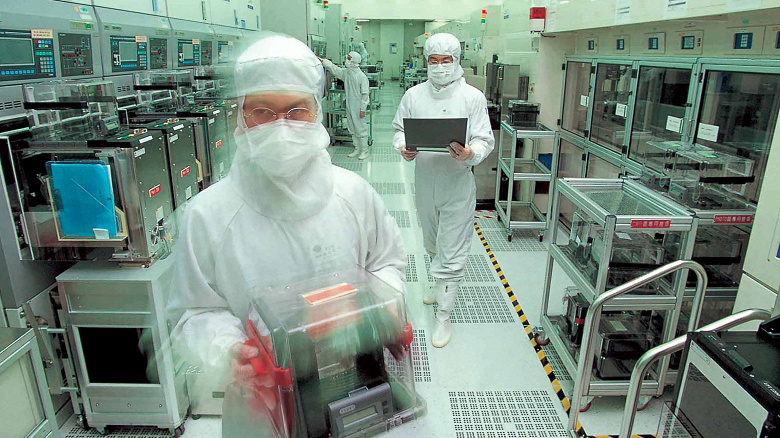In a bid to tap into Taiwan's renowned expertise in skilled worker training, Saxony has initiated a comprehensive program to recruit and educate workers for its burgeoning semiconductor industry. Echoing an old slogan from the German Democratic Republic (GDR), Saxony aims to learn from Taiwan and establish itself as a hub for highly skilled professionals. Under this initiative, the Technical University of Dresden (TUD) plans to send a cohort of talented microelectronics students to Taiwan, aligning their curriculum with that of local Taiwanese academics.

The ultimate goal of this educational exchange is to equip these students with the necessary skills and knowledge required for the upcoming TSMC chip factory in Dresden. By transferring Taiwanese semiconductor expertise and teaching methods, Saxony hopes to bolster its own semiconductor industry and attract further investment in the region. Complementing this vision, officials from the Technical University of Dresden and Taiwanese universities convened in Taipei recently to sign agreements solidifying their collaboration.
The availability of skilled workers emerged as a critical factor in TSMC's decision to choose Dresden as the location for its new chip factory. Recognizing the imminent surge in demand for skilled professionals in the semiconductor industry, Sebastian Gemkow, the Saxon Science Minister from the Christian Democratic Union (CDU), emphasized the need for such initiatives. Even before TSMC's investment, Gemkow underscored the project's broader significance, stating "The need for skilled workers in our entire semiconductor industry will increase massively anyway."
As an initial step, the TU Dresden plans to send a delegation of 40 students to Taiwan for the summer semester of 2024, followed by an additional 100 young academics. The response among students in Dresden has been overwhelmingly positive, demonstrating a strong enthusiasm to participate in the "Semiconductor Talent Incubation Program". This delegation will consist of students from various microelectronics-related disciplines including electrical engineering, computer science, and chemistry.
In parallel to student exchanges, the Dresden University aims to establish a liaison office in Taiwan, serving as a gateway to attract Taiwanese skilled workers to the microelectronics and other industries present in Dresden. This office will also facilitate academic exchange opportunities for both countries. Additionally, the liaison office has the potential to offer language courses, catering to the needs of students and professionals interested in studying or working in Taiwan or Saxony. With a starting budget of approximately 1.5 million euros, the state and the university have allocated one million euros for the office setup and half a million euros for the exchange program.
The establishment of the liaison office in Taiwan serves as a promising pilot project to explore similar acquisition offices in other target regions such as India, Uzbekistan, and Vietnam. This strategic move aligns with Saxony's efforts to address the shortage of skilled workers by exploring talent acquisition opportunities globally.
Originally conceived as a solution to address the needs of Intel, the "Semiconductor Talent Incubation Program" and the university office in Taiwan have evolved into fundamental components of a broader program intended to secure qualified personnel for TSMC's investment. Although Intel ultimately chose a different location in Magdeburg, TSMC represents the first major investor for whom Saxony is implementing a comprehensive skilled worker security package.
In addition to the exchange program, Saxony plans to bolster microelectronics studies at universities in Dresden, Chemnitz, and Freiberg based on Taiwanese experiences. Leveraging existing electrical engineering courses, particularly those in rural areas, will also be a priority. Furthermore, the Technical University of Dresden aims to introduce more English-taught degree programs to attract international young academics. Sebastian Gemkow assured that, if necessary, the state would increase the study capacity at Saxon universities to accommodate the growing demand.
The urgency for skilled workers in Saxony's chip industry cannot be overstated. TSMC alone requires approximately 2,000 specialists for its forthcoming chip factory in Dresden. Moreover, the region's supply industry and surrounding sectors are expected to generate several thousand additional job opportunities. Even prior to TSMC's announcement, the industry association "Silicon Saxony" estimated a demand for around 24,000 skilled workers in the Saxon semiconductor and software sectors by 2030. Hence, Saxony will require a minimum of 26,000 additional microelectronics engineers by the end of the decade.
Given the current limitations in the state's educational infrastructure and an aging population, Saxony's universities, vocational schools, and training centers are unable to fulfill this demand. As a result, expansion programs in both vocational training and the academic sector, as well as efforts to attract international talent, are being planned to address this pressing need head-on.







